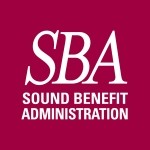Your employee files an FSA claim with SBA for reimbursement. We review the claim and deem the expense to be ineligible or their documentation lacking. We deny the claim and send them a letter telling them the reason their claim was denied. The employee disagrees with our assessment and believes their claim is valid. Can they appeal to have the claim reviewed? The answer is yes. And here is how the appeals process works.
An FSA/HRA must allow for appeals
Flexible Spending Accounts (FSA) and Health Reimbursement Arrangements (HRA) are required to offer an appeals process to participants whose claims have been denied as they are both subject to ERISA (Employee Retirement Income Security Act of 1974) rules and are governed by the Department of Labor (DOL). The law states that welfare plans covered under ERISA must establish and maintain “reasonable procedures governing the filing of benefit claims, notification of benefit determinations, and appeal of adverse benefit determinations.”
At SBA, it’s our job to administer these plans both lawfully and with the kind of care and integrity that you would if you were processing your employee’s claims yourself. With that said, while SBA administers FSA and HRA plans, the employer is considered the legal administrator of FSAs and HRAs, and it is ultimately responsible for the plan’s compliance with ERISA claims procedure requirements. Spoiler alert: this means that, as you will read below, we just might ask you as the employer/legal administrator to join us in the appeals process.
The Road to an Appeal
When an employee submits an expense for reimbursement from their FSA or HRA the DOL requires that the claim must be decided within a “reasonable period” not later than 30 days after the claim is filed/submitted to the plan (with one 15-day extension for “matters beyond the control of the plan,” provided that the plan notifies the claimant before the end of the 30-day period). The 30-day clock starts ticking on the day the claim is filed/submitted/received even if the claim is incomplete.
If a claim is denied, then the plan must provide a written notification “calculated to be understood by the claimant” (i.e. easy to understand) and include the following items in that notice:
- The specific reason for the denial of the claim
- The legal reason for the denial of the claim
- A description of any additional information or material needed from the claimant to meet the legal requirements of a fully-substantiated claim
- A description of the plan’s review procedures, including applicable time limits, and
- A statement of the claimants right to sue under ERISA following an “adverse benefit determination” (a denied claim)
That last bullet can give an employer heartburn, but we are required to include it. Another reason having a compliance-first TPA reviewing claims is important.
Requirements for Appeals of Denied Claims
After an employee receives the denial letter, they must be given at least 180 days in which to appeal the denied claim. Once filed, the appealed claim must be decided in a “reasonable period” not later than 60 days after the appellate filing.
Per ERISA, a plan’s appeals procedures must:
- Be reasonable
- Provide for a review that does not defer to the initial determination and is conducted by a “named fiduciary” who is different from and not the subordinate of the individual making the initial determination (this could be you, employer)
- Provide for the disclosure to the claimant of information and documents “relevant” to the appealed claim and
- Allow the submission of written comments and documents by the claimant
Essentially what all of this means is that if the employer handles appeals of denied claims, as is often the case, you cannot simply “rubber-stamp” our initial decision in the initial determination of the denied claim. Rather, you must take into account any additional comments or documentation provided by the employee when making your decision.
What happens if the claim is denied on appeal?
If the appeal is adverse (denied again), a written notification of “adverse benefit determination on review” must be provided by the plan to the employee including the following information:
- The reasons for the denial
- The legal reason for the denial of the claim
- A statement that the claimant may obtain relevant documents and information, and
- A statement of the claimant’s right to sue.
An additional level of appeal is permitted, but the regulations impose significant limitations on such additional appeals.
If the employee has 180-days to appeal, how does it work if the plan year in which the claim was based is over before the appeal is filed?
Some FSAs and HRAs will wait to close their books for 180 days after a plan year ends (which includes the run-out period). This gives all participants a chance to submit an appeal for a denied claim during the plan year. But this leaves plan years open for a long period of time. At SBA, our FSA and HRA plans close the books shortly after the end of the plan’s run-out period. Then, if a claim is later appealed and approved for payment, the employer will simply pay the claim and make appropriate adjustments.
Does it feel like a Sunday night Matlock episode, where the dutiful, dogged attorney sniffs out every thread of evidence so those who received an unfair verdict can receive another trial and then are found to be exonerated? Yep, alphabet soup administration is just like that…well, maybe not quite that exciting.
